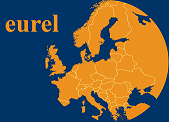Since 9/11 the policies of integration of immigrants and second generations, in special those dealing with the management of religious diversity linked to Muslim population have being influenced by a logic of securitisation” in order to prevent terrorist attacks. Spain is not an exception to this trend, especially since the attacks of Al Qaeda in Madrid in 2004. However local governments in big cities such as Barcelona have been playing a particular role in the governance of religious diversity by involving civic participation and building cooperative relationships with religious Islamic organizations.
Barcelona holds the biggest colony of Moroccan population in the whole country (being 5,8% natives and 22% second generations), also 44,7% of the total Pakistani population in Spain lives in Barcelona, 8,2% of them being second generations (Generalitat de Cataluña: 2015). In 2008 the regional government of Catalonia promoted a wide “National Agreement on Immigration” linked to a process of national building that aimed to include immigrants and second generations in to a Catalonian state by participating on a “public common culture”. Although the local government of Barcelona participated in this process, the city developed it's own intercultural discourse focused primarily on urban integration and on the management of public space.
This communication analyzes the Barcelona's model of governance of religious diversity coming from Islam focusing on its modifications and/or its continuities in the context of the recent change of government since 2015, where a civic Platform named “En Comú” won for the first time the elections. It also analyzes the perception of this model of governance on Muslim religious organizations and other stakeholders. The research is based in a qualitative study including interviews with selected stakeholders, local government officials and official documents. It also includes quantitative information of public opinion obtained from official polls.

 PDF version
PDF version
